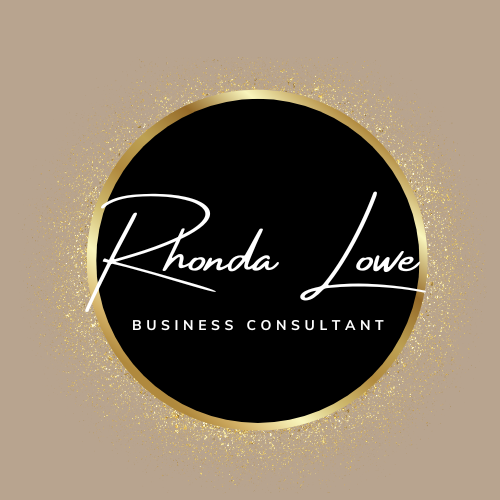
Now is the time to bring those details together.
Now is the time to bring those details together.
Step # 4 DEVELOP Your Plan
You’re now at the point where all of those thoughts and big ideas will turn into plans. It is these plans that will provide structure to your business and guide you in making the best decisions. Some of these will be the “fun” ones and others you just have to get through. From this point on it is important to begin keeping really good notes because there are a lot of details.
Start -Up Costs
This is at the top of the list because it is that important. It is often overlooked or skimmed over without looking at real numbers. Knowing what you will need to start your business is crucial because you want to make sure you have enough start-up funds to sustain you until your business gets established. Funding a small business covers a lot of things. Check out this list of possible start-up costs to help you get started.
Funding Your Business
For some, starting your business will require little more than paying for a Business License and maybe some business cards. For others, you might be looking at a myriad of things that will require a substantial outlay of cash before you even open the doors. Knowing your start-up costs will give you a clear idea of how much money you are going to need.
Once you know that number, you will have to decide where that money is coming from. Will this be your personal money that you will be investing in the business to get it started? Or, will you be loaning the business this money as “seed money” to be repaid in the future? Ask yourself how much are you willing to risk, because that is always a possibility.
Here are some funding sources to consider:
-
Personal Savings
-
Bank Loans
-
SBA Guaranteed Loans
-
Loans from friends and/or family
-
Crowdfunding
-
Angel Investors
-
Venture Capital
Each of these come with both pros and cons so it is important to weigh them carefully.
One thing you should try and avoid is using your retirement account or credit cards. Both of these are never suggested as a good way to fund your business.
Choosing the Best Legal Structure for Your Business
For many start-ups, choosing the best legal structure for your business simply means opting for Sole Proprietor. This works well for a lot of small businesses to at least start with.
There are certain types of businesses that have more inherent risks so you would want to consider whether an LLC or some form of corporation makes better sense. It is never a bad idea to spend the money to have a consultation with an attorney to make sure your choice is the best one for you. The SBA also has a simple form to give you guidance.
Naming Your Business
This can be one of the hardest things when it comes to starting your business. It is so important that you get it right because it will be with you from that time forward and people will make assumptions about your business just by the name.
Here are some Do’s and Don’ts:
Do
-
Make it easy to remember
-
Be sure it identifies what you do or sell
-
Keep it short
-
Find words that describe what you do or sell but in an inspiring or emotional way
-
Check to see if the domain is available
-
Register it
Don’t
-
Choose a funky spelling
-
Be so vague no one knows what your business is about
-
Make it hard to pronounce
-
Copy someone else
-
Make it so narrowly focused that it can’t grow with your business
-
Get stuck by asking a lot of people for their suggestions
What Licenses and Permits Will You Need?
Different businesses will have different requirements for licenses and permits that will be required. Almost every municipality will require you to get a Business License. Some industries will have additional licenses and permits that are required.
Here are some potential licenses and permits you might need:
-
Resale Permit if you are selling something that requires you to collect sales tax
-
ABC license if you are selling alcohol
-
Fictitious Business Name if you are using something other than your name in the business
-
Federal and State Identification Number
-
Health permit if you are preparing and handling food
-
Zoning permit if you are looking to operate your business in an area not zoned for it
-
Fire permit if you are handling flammable products or where groups of people are gathering
-
Sign permit if you are putting up a sign and your City requires it
-
Building and/or Construction permit if you are making structural changes to your building
-
Environmental permit if your business is engaged in an activity that a contaminant might be discharged into the air or water
These are some of the more common ones. Check with your City and County government for any specific to your area.
Selecting the Right Location
If your business will be open to the public, and foot traffic is important, then taking the time to find the right location is important. This is especially true for brick and mortar retail businesses. There are many factors to consider, and this checklist goes into greater detail to help you make the right choice.
Pricing Your Products and Services
Knowing what to charge for your products and/or services can trip a lot of people up. Often people take a guess at what they think someone would pay. Often, they are wrong and end up under-pricing themselves.
The first step is to know what it cost you to purchase or make that item. In the case of purchasing, you must include the cost of the item plus any shipping or other costs. If you are making an item to sell you must also include not just the cost of the materials but the time it takes for anyone and everyone involved in that process.
Beyond that are your overhead costs that your products or services must pay for. This includes your rent, utilities, insurance, payroll and all of those expenses you must pay every month. This all adds up to what is known as “Cost of Goods.”
Knowing what your competition is charging for the same or similar item is helpful, but you need to know your hard costs.
If you are providing a service, you will need to know what value you are placing on your time. There are a number of factors in determining this.
- Expertise
- Education
- Experience
- What your competition is charging
- Your overhead
- What you need to bring home as an income
- How complex or superior your service is
Having a strong budget for both your business and personal life can be a big help in setting your rates.
Setting Up Your Back Office
It is not uncommon to walk into the office of a lot of small businesses and be met with a desk strewn with papers and cups of cold coffee and unopened mail. For many, their time is spent in the front of their store or talking with customers or out on service calls. They might be a “one-man-show” and unable to afford to hire any office help. At the end of the day, it is just easier to turn the lights off and walk away.
The reality sets in when they realize they have not sent out their invoices to get paid and they have not paid their bills. Taxes don’t get turned in and vendors are always calling looking for payment. They might even forget to go make those daily bank deposits.
In the end, what seems like “not so important” turns out to be particularly important. It can cost you money and time and bring on all sorts of stress and frustration.
Taking the time to create a filing system and some sort of calendar system to keep track of things will pay off big time. Holding yourself accountable to keep things organized and done on time can translate to money in the bank for you.
If this is not your forte or you don’t know where to begin, you should be able to find a friend or family member that can do this for you. Keep it simple enough that you can do it on a daily basis. As your business grows you will hire or outsource this. In the meantime, make it easy on yourself and get it done.
Hiring and Training Your Employees
Human Resources is a huge category all by itself so we’ll just touch on the basics here. Not all businesses are able to start off with having employees but if you do, it is important to create a plan. This should involve job descriptions, starting pay, benefits etc. First though, get clear on what you want each of the positions you are filling to do. If it is clear to you then you can make it clear to them in the hiring process. Hiring the right person in the first place should be your goal. Knowing what skills- both hard and soft- and experience you need from them is what you must know before your first interview. If you have a clear picture of this in your mind it will help you with creating job listings that will attract the right candidate.
Creating an Employee Handbook might seem like too much for a small start-up, but it can prove to be invaluable in making sure your expectations are clear. It can also save you some legal hassles down the road when done correctly.
Once hired, the next, and SUPER important, step is to provide training. Having a structured training plan might seem like it is not needed in a small business, but it is. It will evolve as your company grows but it is a good policy and procedure to put in place from the beginning. We often hear, “What if I train them and they leave?” Our response is: “What if you don’t train them and they stay?” Training should be an ongoing investment in your employees. It will pay off in the end.
So, as you can see there is clearly a lot to do to DEVELOP your plan. There are lots of details and most of them have to be done before you even start your business. This is the framework, the structure for how you will operate. It’s important.
Next, we will talk about how to DETERMINE your goals. These are important to keep you on track and moving in the right direction.
If you enjoyed this post, please continue to follow my blog. Click here to join my email list. And if your found value, please share this blog.
If you missed the first 3 Steps in this series check them out here:
Step 1 Discover Your Strengths and Passions
Step 2 Define Your Idea
Step 3 Describe Your Ideal Client
